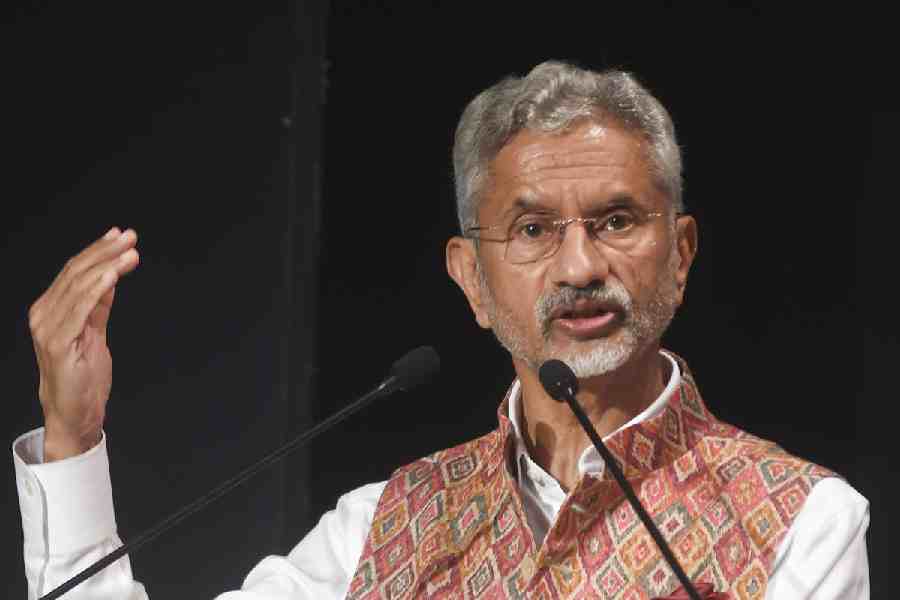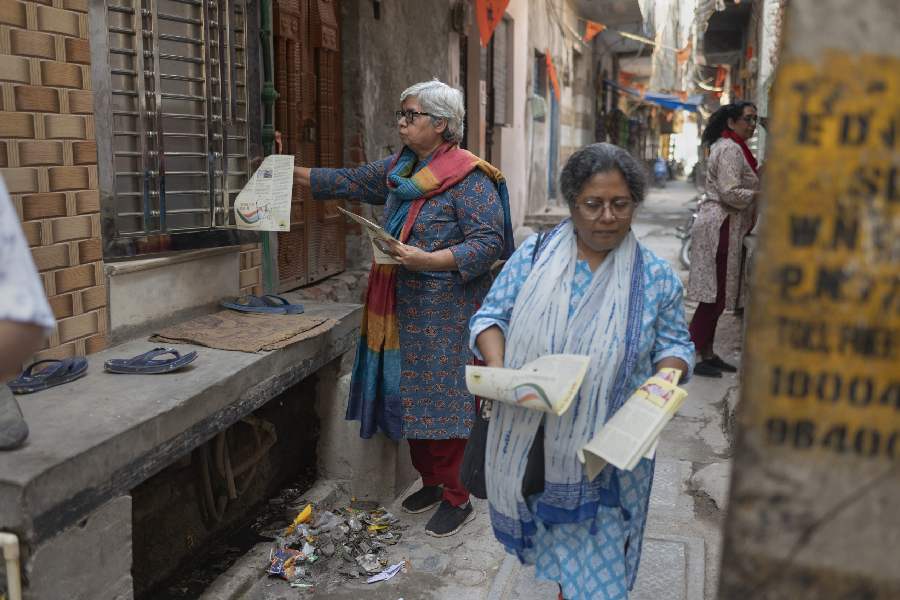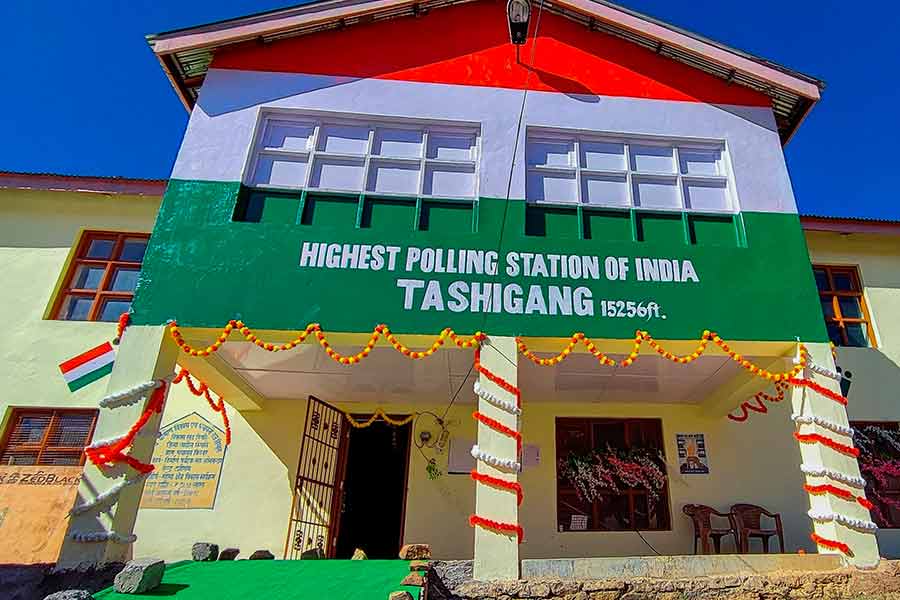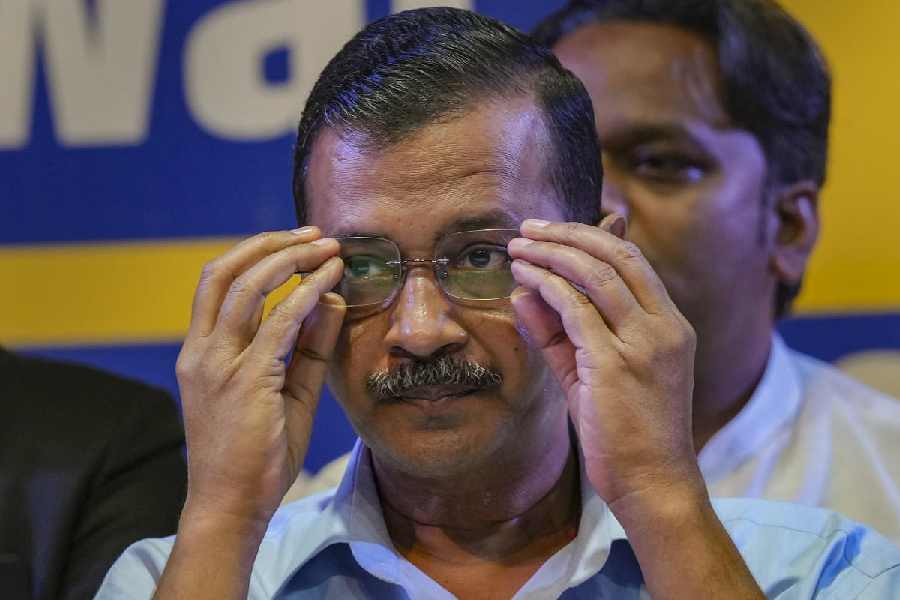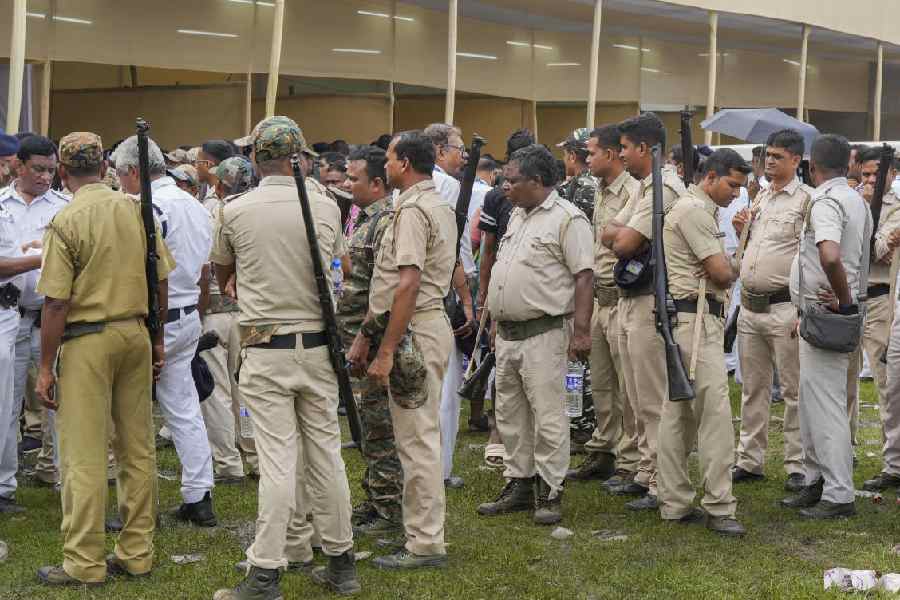External affairs minister S. Jaishankar on Tuesday appeared confident that the US sanctions on Iran would not impact Chabahar Port operations, citing Washington’s appreciation previously of the strategic significance of the deepwater port in southeastern Iran on the Gulf of Oman.
Jaishankar was responding to a question on the US warning of the “potential risk of sanctions” against anyone considering business deals with Iran soon after New Delhi on Monday signed a 10-year contract with Tehran to operate the Chabahar Port. The long-term agreement was signed by Indian Ports Global Limited and the Port and Maritime Organisation of Iran.
Responding to a query on the US warning at an event in Calcutta, Jaishankar said: “I think it’s a question of communicating and convincing and getting people to understand that this is actually for everybody’s benefit. I don’t think people should take a narrow view of it. And, they have not done so in the past. If you look at the US’s own attitude to Chabahar in the past, the US has been appreciative of the fact that Chabahar has a larger relevance. We will work at it.”
On Monday, when asked if the US had a view on the agreement, state department principal deputy spokesperson Vedant Patel said: “US sanctions on Iran remain in place and we’ll continue to enforce them.” When quizzed further on whether this meant Indian firms too could face sanctions, he added: “Any entity, anyone considering business deals with Iran, they need to be aware of the potential risk that they are opening themselves up to and the potential risk of sanctions.”
Asked if this meant “there’s not an exemption for this specifically”, the answer was a categorical “No”.
Although Jaishankar sought to appear confident in dealing with this renewed invocation of sanctions, Patel’s statement is a step back from the waivers that the US had given to India in 2018 for the development of the Chabahar Port, including the building of a railway line connecting it to land-locked Afghanistan. Primarily, the US was driven at that time by its stakes in Afghanistan.
Jaishankar’s related remarks indicated that he hoped to make strategic use of the port for the entire region — at a time when supply chains through the Red Sea stand disrupted by the conflict in West Asia since the Hamas attack on Israel — a reason for the US to continue with the waivers.
“The long-term agreement (for Chabahar) was necessary because without it we cannot really improve the port operations. And, the port operations will benefit the entire region,” he said.
However, the waivers that were granted by the Trump dispensation were primarily aimed at Afghanistan. Now that the US has pulled out of Afghanistan, the circumstances have changed and could impact Washington’s response to India’s 10-year contract to run the port.
For India, Chabahar is a counter to the China-built Gwadar Port in Pakistan’s Balochistan province and also a route to conduct trade with Afghanistan and central Asia, bypassing Pakistan.
The Chabahar Port is also envisaged as a key hub of the International North-South Transport Corridor — the 7,200km-long multi-modal transportation network in the works since 2000 — for moving freight between India, Iran, Azerbaijan, Russia, Central Asia and Europe.

